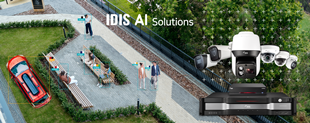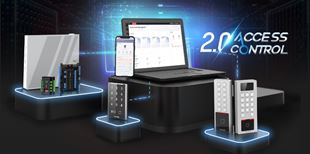Now, different industry sectors are merging slowly together in the name of technology integration, internet of things and smart cities. Video surveillance, sensor technology, ID and access control can be used for so much more than security. Cameras offer process surveillance in the industry or heat mapping, cash point management in the retail sector to mention just a few areas. ID- and access control can also be used for several non-security tasks, like checking out how a location in an office building is occupied in order to optimise the use of available workplaces in real time.
With the development towards more integration between different technologies, the role of the security technology industry is very much to be a part of something bigger than just security related installations. At the same time, the priority for security has increased in both the governmental and the private sector, which creates a strong foundation for growth for a long time to come. So, there are no doubts that the growth will continue for a long time to come. But the identity of the security technology industry is about to change.
Over the last 20 years western security technology companies have become increasingly dependent on other industries, because they have been acquired and merged into diversified conglomerates. Leaders of the IP-video surveillance market were Axis (cameras) and Milestone Systems (VMS) – today they are both part of the Canon Group. On the analogue video surveillance market, Pelco was the market leader – now this American company is a part of Schneider Electric. Add to this that giant companies like Tyco and Honeywell, own a number of important security technology companies and that Motorola recently acquired the Canadian video surveillance company Avigilon.
Finding a pure security technology company group with multi billions of dollars in yearly revenue is not easy. Assa Abloy, the global market leader within locks and access control is an exception.
A security technology industry, which has become embedded in big diversified multinational companies, and a market striving towards integration and connectivity leads to another perspective on the business of security, especially as the features of todays’ security systems are increasingly about other functionalities than purely security.
The market becomes wider but also less defined. Security belongs to all verticals. It means a more diversified marketing stage for security technology companies. No wonder that they often are so well represented as exhibitors at events for the retail sector, transportation, building industry or futuristic events regarding smart cities and the Internet of Things. Security technology companies need to be where the customers are. And their customers are not necessarily only represented by security managers anymore.
This development is clearly affecting organisers of security exhibitions worldwide, as the security companies have to split their marketing budgets to accommodate different types of events. This is one reason why events like Ifsec and Security Essen are having difficulty in developing new growth. Competition from all kinds of events takes its toll.
Against this background one can say that security has become increasingly important and a vital part of all industry sectors – but also less its own business.
In this regard, the security technology industry is suffering from an identity crisis.
















